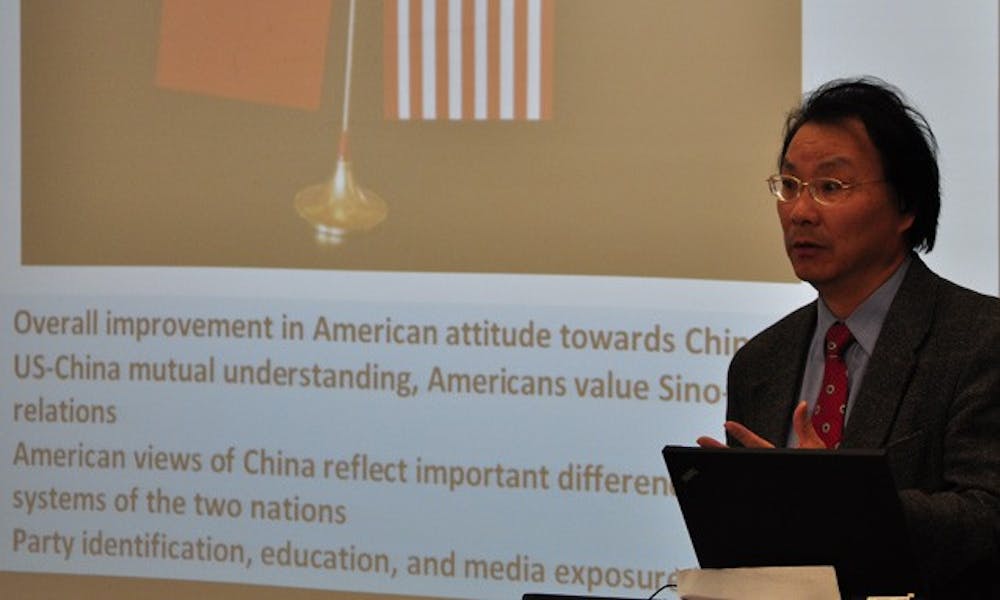Blue Devils and Tar Heels came together this past weekend to learn about how China might play into their future.
Students from Duke and the University of North Carolina at Chapel Hill gathered on both campuses for the “Duke-UNC China Leadership Summit” to hear distinguished faculty and businessmen relay their business, academic and cultural experiences with the rising power. Organized by students from both schools, the two-day event was intended to provide a forum for discussing the rise of China and its effect on students’ post-graduation plans.
“We need people who are trained in cultural sensitivity and have more experience than simply visiting,” said Dominic Sachsenmaier, an assistant professor of history who delivered Sunday’s keynote speech. “Students need more than professional expertise. They also need to understand foreign manners and have open minds.”
The conference, housed Saturday in UNC’s Graham Memorial Hall and Duke’s Social Sciences Building Sunday, featured lectures and workshops collectively intended to introduce students to a variety of facets of China—from the problems of its one-child policy to East Asia’s continuing modernization.
With a unique combination of world-class universities and research facilities, North Carolina has enjoyed benefits from globalization despite some negative impacts of outsourcing, speakers said. Duane Long, who founded the North Carolina China Center said the state has been developing strong business ties with China for several years. NCCC is an organization committed to furthering Sino-American interaction.
“The NCCC’s mission is to build a business, cultural and educational bridge,” he said. “I will tell you today we have achieved great success.”
Senior Jack Zhang, who served as a conference coordinator, said that the strengthening relationship between North Carolina and China marks a national trend.
“Up to now, we’ve seen China as a foreign policy issue, but increasingly it is becoming a domestic one,” he said. “The Research Triangle Park is a microcosm of what future US-Sino relations could look like. I’m surprised by how few students are thinking globally.”
Also in attendance was a visiting delegation of Chinese public officials from the province of Anhui, who are in the United States to learn how to better serve on the Chinese counterpart to the U.S. Food and Drug Administration. David McNeill, associate director of the North Carolina State University’s Global Initiative Training, said the delegation was here to learn proper food, pharmaceutical and medical devices regulatory practices.
“China is already exporting food,” he said. “Soon it will be pharmaceuticals, which we will want to be at the same level of regulation that we have here,” he said.
Toward the end of the conference, Sachsenmaier spoke about how the Sino-American relationship could rapidly change in the future.
“The problem is, in order to understand what the relationship with China will look like, we must know what our environment will also be,” he said. “The world could be very different in 20, 30 years.”
Get The Chronicle straight to your inbox
Sign up for our weekly newsletter. Cancel at any time.

